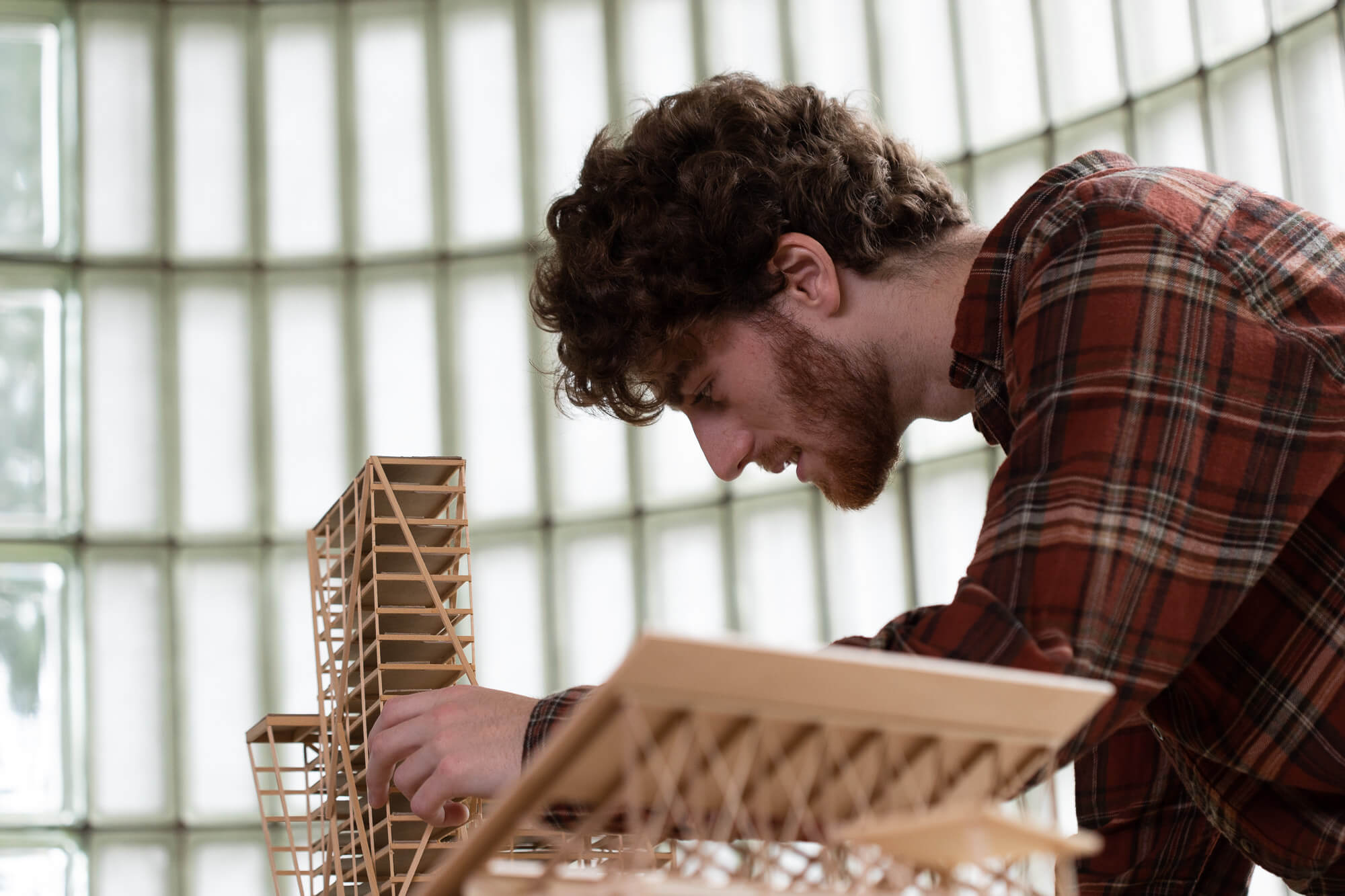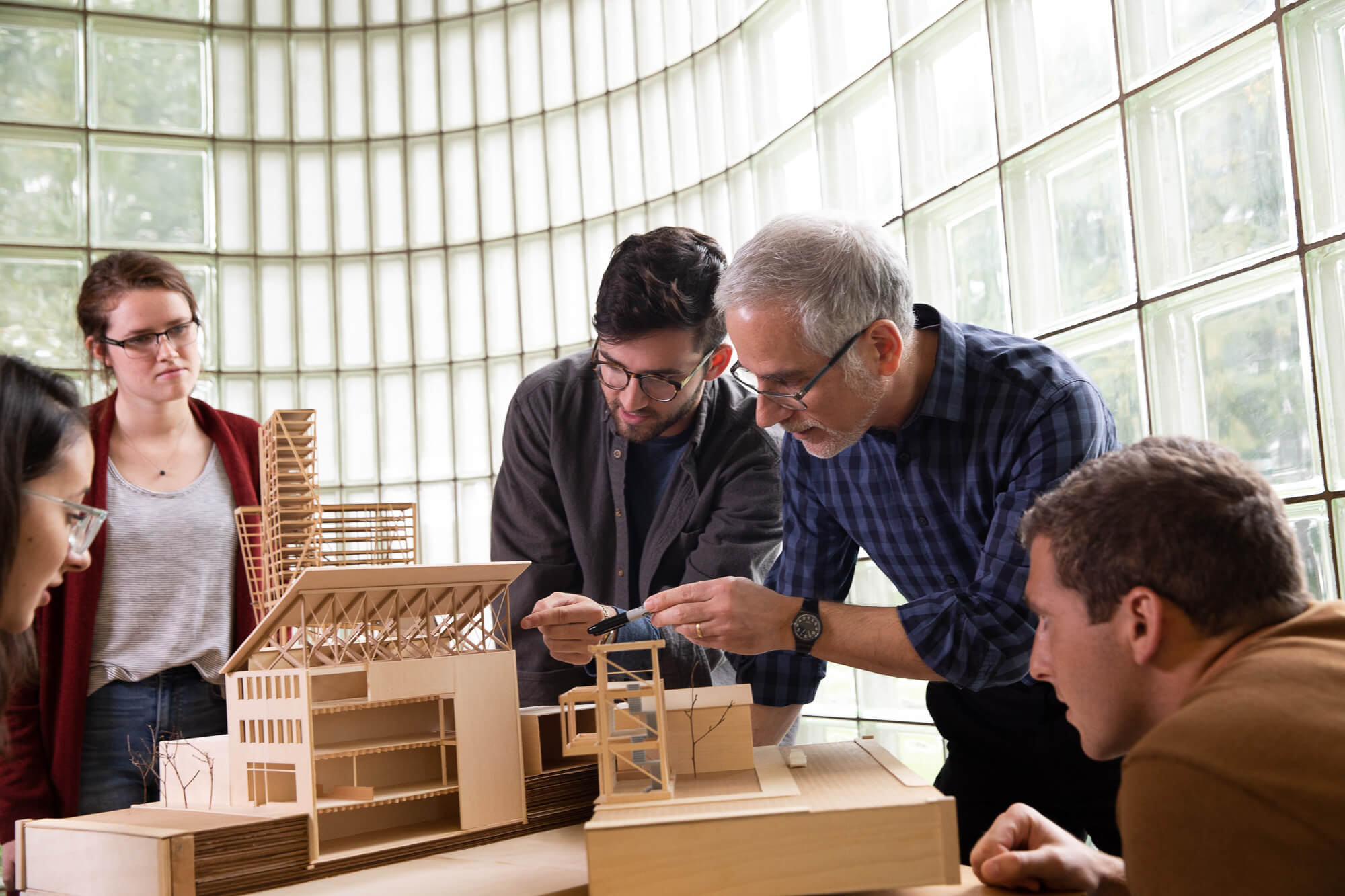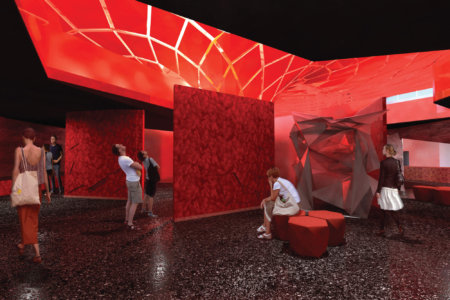Cities occupy just 3% of the earth’s land but account for 60% to 80% of energy consumption and at least 70% of carbon emissions, according to UN data.
Studies also show that by 2050, two-thirds of all humanity — 6.5 billion people — will be urban-dwelling. As populations grow, so will cities and migration rates. This growth will lead to a boom in mega-cities, especially in the developing world.
As we face these stark facts and a climate crisis, society needs eco-innovation and a sustainable focus more than ever before. Today’s educators have a crucial responsibility: to nurture a new cohort of professionals who will and can push sustainability to the forefront of the world’s agenda.
At Thomas Jefferson University’s College of Architecture and the Built Environment, every program shares the same goal: to develop sustainable changemakers. Here, a cross-disciplinary approach is used to its full advantage — ensuring students graduate ready to add value and equipped to lead this evolution in sustainable practice.

Source: Thomas Jefferson University, College of Architecture & Built Environment
“Our unique approach to teaching and learning is providing students with unprecedented possibilities for success,” shares Dr. Barbara Klinkhammer, Dean of the College of Architecture and the Built Environment.
Here, two graduate programs stand out in supporting its efforts to spark global change: Master of Urban Design — Future Cities and Master of Architecture.
With the Master of Urban Design — Future Cities (MUD), a STEM-designated program guided by expert faculty members, those interested in the development of sustainable, healthy, and smart cities gain core skills and knowledge. The program highlights pressing contemporary issues with far-reaching consequences, such as the need to develop urban resilience and carbon neutral communities. In the process, students gain exposure to smart technologies that achieve environmental wellness on multiple scales to combat rapid urbanization and climate change.
At Jefferson, research and industry experiences are offered alongside comprehensive curricula. MUD students enjoy these benefits with the Jefferson Institute for Smart and Healthy Cities. To enhance their qualification, they select from a vast array of concentrations offered by the college – Geodesign, Urban Revitalization, Smart Cities and Urban Analytics, or Resilient Cities – or focus on Public Health through its collaboration with the Jefferson College of Population Health.
International exposure is another unique plus. Enrollees will be able to travel to a variety of national and international metropolitan areas. This real-world experience will enable them to explore the challenges of rapid urbanization first-hand. It also enlightens those seeking a career in the field.

Source: Thomas Jefferson University, College of Architecture & Built Environment
The options are numerous for MUD graduates. This qualification opens doors to a wide range of meaningful, rewarding careers in academia; municipal, state, and national government agencies; as well as industrial, public, and private agencies. It provides a solid foundation to those who are keen on continuing their education with advanced research or a PhD in Architecture and Design Research too. “Everybody who has a passion for adding value to society through creation, is able to find a place in this profession,” explains Klinkhammer.
The elements that make up cities are of equal importance. Within the US, both residential and commercial buildings are responsible for 40% of energy consumption. Globally, the issue is just as prominent. Buildings and their construction account for 36% of the world’s annual energy usage and 39% of energy-related carbon dioxide emissions.
For those looking to undo decades of this damage, and reap the same benefits of MUD students, the Master of Architecture is a better fit. This graduate qualification prepares students for professional architectural practice through the development of sustainable design and technology skills, exposure to project management, and transformative, collaborative experieces –– all of which expand horizons and nurtures experts. Areas comprehensively covered within this program include: general design, sustainable design, visualization, technology, research methods, professional project management and more.
Additionally, Jefferson offers undergraduate and graduate programs in Sustainable Design, Historic Preservation, Geodesign, Real Estate Development, Interior Architecture, Landscape Architecture, Construction Management and more.
There’s a lot to learn across the globe, however, Jefferson students have inspiration right at their doorstep. The best place to learn about design, construction and the other crucial elements that make an urban city? Philadelphia, Pennsylvania — an urban lab in its own right, also where the Jefferson’s East Falls Campus is located
It’s a vibrant city that provides its residents with the best of both worlds — small town charm and big-city advantages. Sustainability is huge here, with the city’s Office of Sustainability working tirelessly to reduce its carbon emissions and improve quality of life in more ways than one. Furthermore, as an early leader in the Industrial Revolution and in American commerce and finance, it is packed with opportunities for innovation and rewarding careers in one of over 250 architecture and engineering firms.
Jefferson utilizes its ideal location by furnishing students with professional experiences. To facilitate this immersion, the College of Architecture and the Built Environment partners with major national architecture and design firms, corporations, local communities, and non-profit organisations. These connections allow students to apply knowledge as they go — working on real-world projects and networking with industry leaders — both of which fast-track successful careers that will build a better tomorrow. Interested in getting involved? Thanks to Jefferson, you can. Learn more here.
Follow Thomas Jefferson University on Facebook, Twitter and YouTube













